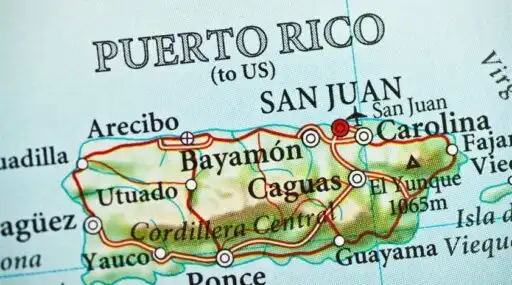Celia Cruz, a Musical Odyssey Through the Life of La Guarachera de Cuba
In the vibrant tapestry of Cuban music, the legacy of Celia Cruz stands as a towering testament to the power of rhythm, resilience, and unbridled passion. This biography unravels the extraordinary life of the Queen of Salsa, tracing her journey from the streets of Havana to international acclaim. Celia Cruz’s story is one of indomitable spirit, musical innovation, and an unwavering commitment to her Cuban roots.
Early Life and Musical Awakening
Celia Cruz, born Ursula Hilaria Celia de la Caridad Cruz Alfonso on October 21, 1925, in Havana, Cuba, was destined for greatness. From a young age, she exhibited a profound love for music, drawing inspiration from the diverse sounds of the Caribbean that permeated her neighborhood.
Celia’s musical awakening was nurtured within the vibrant culture of Havana, where she soaked in the influences of Afro-Cuban rhythms, jazz, and the burgeoning sounds of salsa. Her parents, recognizing her innate talent, supported her early musical pursuits, laying the foundation for a career that would eventually redefine Latin music.
La Sonora Matancera and Rise to Fame
Celia’s journey to stardom began when she joined La Sonora Matancera, one of Cuba’s most renowned orchestras, in 1950. Her distinctive voice, marked by its vibrant energy and emotional depth, quickly set her apart. It wasn’t long before she became the lead singer of the group, propelling La Sonora Matancera to new heights of popularity.
During her 15 years with the orchestra, Celia Cruz’s collaborations with La Sonora Matancera produced numerous hits, including classics like “Burundanga” and “Cao Cao Maní Picao.” Her fame extended beyond Cuba, and she gained recognition throughout
Latin America. However, as political tensions escalated in Cuba, Celia faced a crucial decision that would shape the course of her life and career.
Exile and Reinvention
In 1960, following Fidel Castro’s rise to power, Celia Cruz and her husband, trumpeter Pedro Knight, made the difficult decision to leave Cuba. Their exile marked a pivotal moment in Celia’s life, as she bid farewell to her homeland, family, and La Sonora Matancera. The couple settled in the United States, where Celia faced the daunting task of rebuilding her career in a new and unfamiliar environment.
Undeterred by the challenges of starting afresh, Celia embraced her exile as an opportunity for reinvention. She quickly found herself at the heart of New York City’s burgeoning Latin music scene. Collaborating with renowned musicians like Tito Puente and Johnny Pacheco, Celia Cruz’s distinctive voice began to resonate with a wider audience, transcending linguistic and cultural barriers.
The Fania All-Stars Era
The 1970s marked a pivotal era in Celia’s career with her collaboration with the Fania All-Stars, a collective of top Latin musicians. This collaboration resulted in electrifying performances and iconic recordings that propelled salsa music to unprecedented heights. Songs like “Quimbara” and “La Vida Es Un Carnaval” became anthems, and Celia Cruz’s dynamic stage presence earned her the title of the “Queen of Salsa.”
Celia’s partnership with the Fania All-Stars not only solidified her status as a global icon but also contributed to the mainstream popularity of salsa. Her magnetic personality and vibrant costumes became synonymous with the genre, capturing the essence of the Afro-Cuban diaspora and the pulsating rhythms of Latin dance music.
Queen of Salsa’s Global Reign
Celia Cruz’s reign as the Queen of Salsa extended far beyond the borders of the United States. Her international tours brought salsa to stages across Europe, Africa, and Asia, captivating audiences with her unmatched vocal prowess and infectious energy. Celia’s impact went beyond music; she became a cultural ambassador for Latin America, promoting the rich heritage of her Cuban roots.
Her collaborations with artists from various genres, including rock, pop, and hip-hop, showcased the universality of her appeal. From duets with David Byrne to appearances with Wyclef Jean, Celia Cruz demonstrated that salsa was a genre that transcended cultural boundaries, embracing the world with its irresistible rhythm.
The Indomitable Spirit and Iconic Persona
Celia Cruz’s indomitable spirit was not only evident in her music but also in her unwavering commitment to her identity. Her signature catchphrase, “¡Azúcar!” (sugar), became synonymous with her exuberant personality and served as a rallying cry for joy and celebration. Celia’s vibrant stage presence, adorned with elaborate wigs and flamboyant costumes, made her a visual spectacle and an enduring fashion icon.
Beyond the glamour, Celia Cruz was a trailblazer who shattered gender and racial barriers in the music industry. Her success paved the way for future generations of Latinx artists, and her resilience in the face of adversity became a source of inspiration for those navigating their own journeys in the world of entertainment.
A Cultural Legacy and Awards
Celia Cruz’s impact on the music industry was duly recognized through a multitude of awards and honors. She received several Grammy Awards, including a posthumous Lifetime Achievement Award in 2016. The Smithsonian Institution honored her as a Living Legend, and she was awarded the Presidential Medal of Freedom, the highest civilian honor in the United States.
Celia’s contributions to the arts extended beyond music. She penned an autobiography, “Celia: My Life,” providing insights into her remarkable journey. Her story also became the subject of documentaries, ensuring that future generations would have the opportunity to discover the Queen of Salsa’s enduring legacy.
Legacy and Enduring Influence
Celia Cruz’s passing on July 16, 2003, marked the end of an era, but her legacy continued to reverberate through the soulful beats of salsa. Her influence remains palpable in the music of contemporary Latinx artists who draw inspiration from her groundbreaking career.
The Celia Cruz Foundation, established after her death, continues her philanthropic work, supporting causes related to health, education, and the arts. The foundation ensures that Celia’s commitment to uplifting her community lives on, embodying the principles of compassion and generosity that defined her life.
Conclusion: The Eternal Rhythm of Celia Cruz
In the grand symphony of Latin music, the rhythm of Celia Cruz endures as a timeless melody. Her biography is a testament to the transformative power of music, transcending borders and enriching the tapestry of global culture. Celia Cruz, the Queen of Salsa, not only conquered the world with her voice but also left an indelible mark on the hearts of those who experienced the magic of her music.
As we continue to dance to the infectious beats of “La Negra Tiene Tumbao” or revel in the joy of “Guantanamera,” we celebrate the life of a woman who defied expectations, embraced her heritage, and became an immortal figure in the pantheon of musical legends. The Queen of Salsa lives on, her spirit embedded in every note, reminding us that the rhythm of Celia Cruz is eternal, a vibrant heartbeat that resonates across generations and continents.
.- Youtube.com – Celia Cruz Link here.










































Leave a Reply